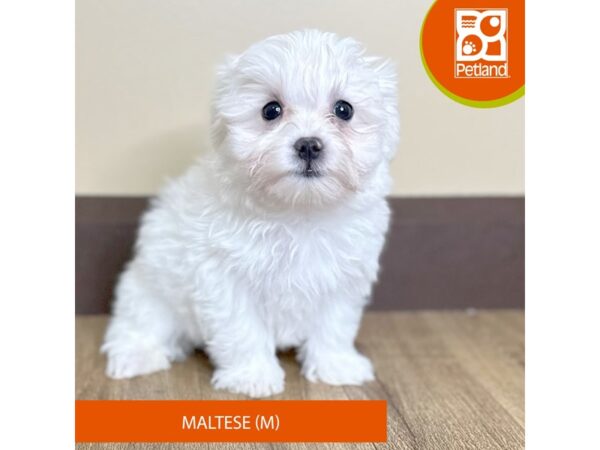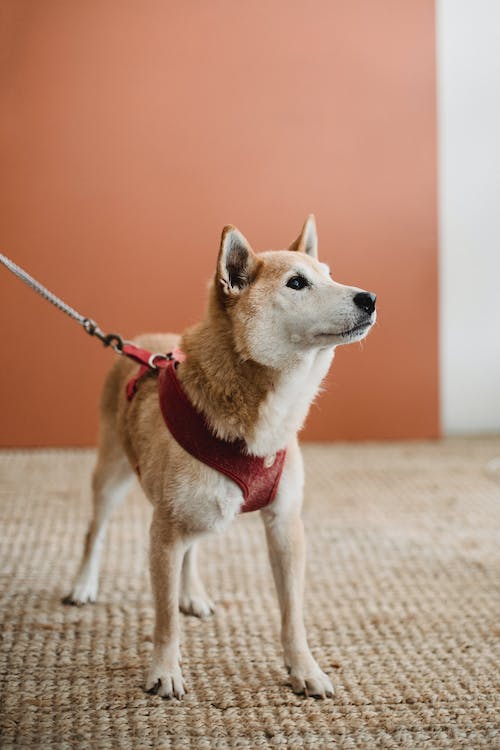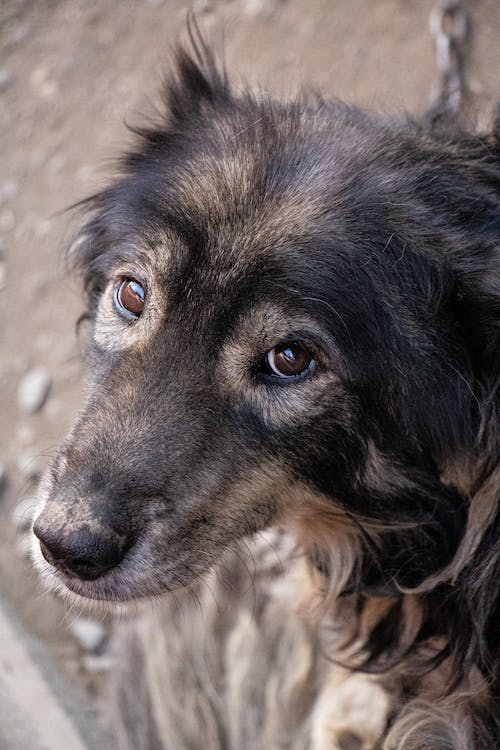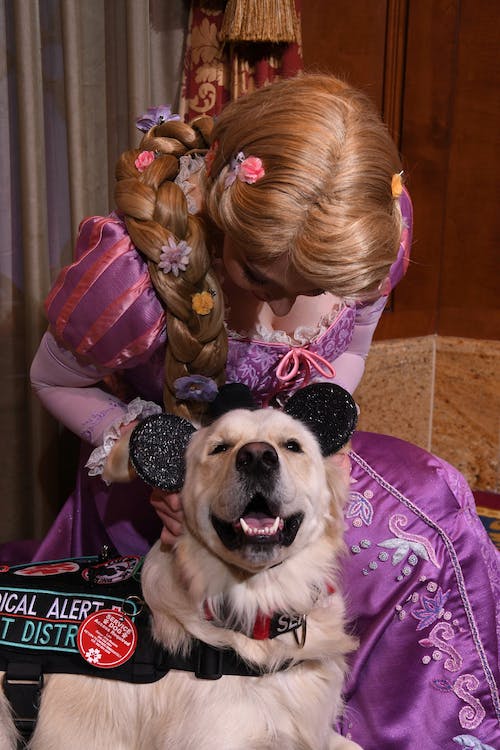Please create a free account, or login by clicking here.
Petland Grove City & Columbus, Ohio
 Adopted
Adopted
Status
Adopted
Reference ID
15341
Birth Date
04-11-2022
Gender
Male
Color
White
Please fill out our contact form below.
"*" indicates required fields

Maltese were named from where they originated, Malta, which is a small island south of Italy. This breed has roots that date back centuries. Queen Elizabeth and Queen Mary adored this breed and kept them as companion dogs in their palace. The Maltese has a very established history as a quality dog that has provided many people with true loyal companionship.
Maltese have exceptional personalities and very warm and tender temperaments. This breed enjoys being around his family and enjoys engaging with them. Thanks to their non-aggressive behavior and gentle disposition, they make wonderful family pets who do well around children and other pets in the home. This breed is also used as a therapy dog due to its overall personality, demeanor, and genuine caring ways.
The Maltese has a stunning silky white coat that requires routine grooming and care. Many Maltese owners suggest a full brushing of their dog's coat two to three times a week. Prior to brushing your puppy's coat, apply a light spray of water or a detangling agent to his fur. This will prevent his coat from knotting and will allow a much easier and more pleasant brushing session for your dog. The Maltese also tends to do well with a bi-weekly bath and routine nail clipping. This will help your dog feel and look his best. Do not forget to clean his teeth about three times a week. Good oral hygiene is a great way to prevent health issues.
Keeping your Maltese filled with energy is important, especially in his puppy years. This is accomplished by using only quality dog food and on a set schedule. Many Maltese owners find that two cups of dog food per serving is best. These servings should be divided into twelve-hour segments. The actual amount of food you feed your dog will ultimately depend on his size and activity level.
Fact: The AKC ranks the Maltese the thirty-seventh most popular breed out of about 200.
Fact: Maltese date back as far as 500 BC.
Fact: Aristotle referred to the Maltese as the "Canis Melitaeus."
Petland is honored to offer the highest quality Maltese puppies who will be an instant in your family.
Top 10 Frequently Asked Questions About the Maltese
Are Maltese hypoallergenic?
The Maltese fall under the class of hypoallergenic dogs
Are Maltese easy to train?
The Maltese is a very docile dog. Training a Maltese is not a particularly hard task, as they are bound to do whatever you ask of them.
What is the life expectancy of a Maltese dog?
A Maltese dog has a life expectancy of about 12 to 15 years.
Are there other colors of a Maltese dog?
Maltese dogs are predominantly white.
Can you dye a Maltese dog?
You will need to get a Maltese dog to a proper groomer to dye their coat without complications. Otherwise, it is safe.
Does a Maltese dog suffers from separation anxiety
A Maltese dog tends to act up if it is left alone for a long period.
Can you trim a Maltese dog?
A Maltese dog is trimmed to reduce the amount of time spent on grooming.
How long can you leave a Maltese dog alone?
A Maltese dog should not be left longer than 8 hours alone.
Does a Maltese dog shed a lot?
A Maltese dog does not shed a lot.
What is the height of a Maltese dog?
A male Maltese is about 21- 25cm, while a female Maltese is about 20-23cm.
If what you need is a companion dog, that will grow to love you and your family and Vice Versa you would love Maltese dog





















When you get a healthy and well-adjusted pup that requires little in the way of training, then quite a bit of work has gone behind the scenes. This is often the work of a profes...

What Is a Dog Harness? A dog harness is a type of equipment designed to secure and control a dog during walks or other activities. Unlike traditional collars, which put pressure...

Dogs possess an extraordinary sense of hearing, which allows them to detect and interpret sounds far beyond human capabilities. Their acute auditory system is finely tuned to pe...

Service dogs are well-trained professional dogs that help to those who need them. Each service dog has a specific set of skills that require training and testing to master. Serv...

Are you considering adding a fur-legged friend to your family? If so, this blog is for you. We have handpicked our Top-5 dog breeds based on their personality, temperament, and ...

Choosing a name for your new furry friend is an exciting and important decision. It sets the tone for their identity and becomes a part of their everyday life. With so many opti...

With winter here, it is important to take extra care of our furry friends. Dogs, just like humans, can be susceptible to the cold weather and may require additional measures to ...

Crate training is a popular method used by dog owners to train their furry friends. It involves using a crate or kennel as a safe and comfortable space for the dog to rest, slee...

Dogs are known for their playful and active nature, which often leads to accidents and injuries. One common injury that dog owners may encounter is a bleeding nail bed. A bleedi...

The average life expectancy of a dog varies based on several things. Keeping a proper diet, maintaining a healthy weight, and routine veterinarian wellness checks are all very i...

Halloween is a time of year when people get to dress up in creative and fun costumes, but it’s not just humans who can get in on the fun. Dogs can also join in the Hallowe...

Despite their intimidating appearance, larger dog breeds are generally well-tempered, caring, and friendly animals! Throughout history, many of these dogs have been relied on fo...

Dogs make great companions and quickly become a part of our family. They offer us years of joy and happiness and provide us with a lot of good. Each breed of dog varies and has ...
"*" indicates required fields
CCC is a nationwide certification program which establishes rigorous standards for breeders. The CCC’s audit guidelines are the first to comprehensively focus on behavior and physical health of dogs.
Source: vet.purdue.edu/ccc/consumers.php